
Media
Stay Ahead with Media World’s Advertising Insights & TrendsIn the UAE, consumer behavior is significantly impacted by the rise of digital out-of-home (DOOH) advertising.
Consumers, especially the tech-savvy younger generation, are increasingly drawn to interactive and engaging digital displays, particularly in high-traffic areas like malls and transportation hubs.
This preference is fueled by the growing use of smartphones and social media, which enables real-time interaction with brands and seamless cross-channel experiences.
With that in mind, let’s discuss consumer behavior and its impact on DOOH advertising in the UAE.
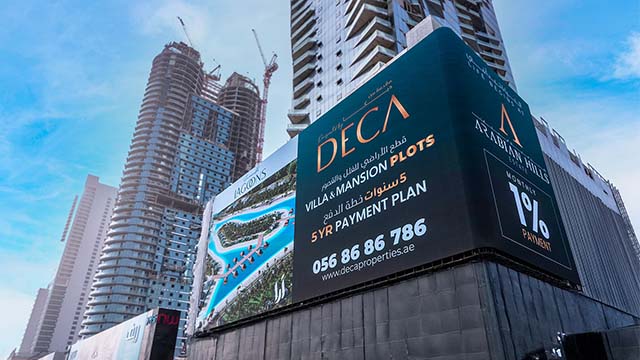
With the recent shift towards digitalization, DOOH advertising has been on the rise since 2018.
The COVID-19 pandemic further accelerated the impact of DOOH with advertisers leveraging its flexibility in response and innovative capabilities.
The advancement in digital out-of-home media is paving the way for the future with its material that enables the incorporation of data feeds and videos alongside the exploration of opportunities.
This creates a unique proposition brimming with vast technological potential for expansion. Moreover, as technology progresses in this field, it will facilitate meaningful interactions with consumers.
Read more: Why Out-of-Home Advertising Still Matters in a Digital World
High Footfall Areas:
DOOH thrives in areas like Dubai's malls, airports, and metro stations, which attract millions of visitors monthly, ensuring high visibility and reach.
Tech-Savvy Audience:
The UAE boasts a digitally aware population that readily engages with interactive and dynamic advertising content.
Luxury Brand Appeal:
The UAE's strong luxury market and influx of international travelers make it an ideal environment for brands to showcase premium products and services through DOOH.
Engagement and Action: 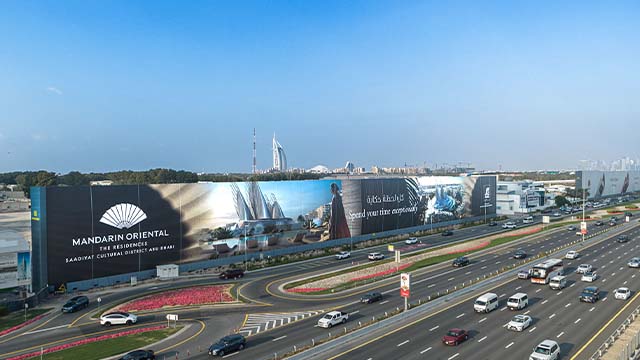
Studies show that DOOH advertising in the UAE leads to higher recall rates (85% of consumers recall DOOH ads encountered during commutes) and increased online actions (62% notice digital displays and 63% are more likely to take online action after exposure).
Personalization and Interactivity:
Consumers in the UAE are increasingly drawn to personalized and interactive DOOH experiences, including augmented reality and location-based targeting, which amplify brand connection and facilitate social media sharing.
Integration with Mobile:
DOOH campaigns are increasingly integrated with mobile advertising, allowing for seamless cross-channel experiences and personalized messaging.
Real-Time Optimization:
The rise of programmatic DOOH enables real-time bidding and dynamic content adjustments based on factors like time of day, weather, and consumer behavior, maximizing campaign effectiveness.
Measurable Impact:
DOOH allows for detailed impression tracking, dwell time measurement, and sensor data analysis, providing marketers with valuable insights into campaign performance.
Cultural Relevance:
Advertisers are tailoring their messages to resonate with local traditions and cultural events, enhancing emotional connections and engagement with diverse audiences.
Transition to Smart Cities:
As the UAE continues its urban development and embraces smart city initiatives, DOOH advertising is poised to play an increasingly vital role in shaping the urban landscape.
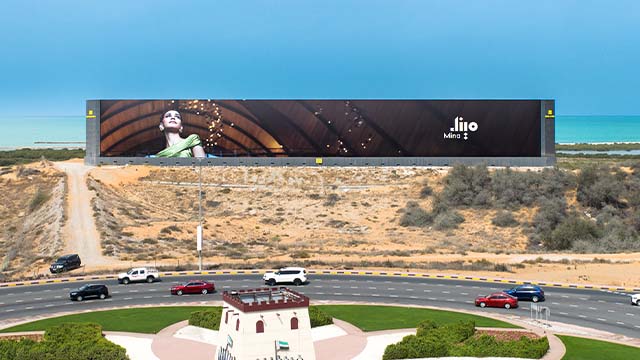
Billboards, hoardings, or unipoles must be positioned in busy locations, where numerous people pass by every day.
The effectiveness of your advertisement increases directly with the number of viewers who see it. A billboard must be placed in an area where the target audience is most likely to observe it. This way, the message would be more effectively conveyed.
Here’s why location matters in DOOH advertising in Dubai:
Read more: Why Location is Everything in Outdoor Advertising
Real-time targeting in DOOH advertising means showing ads based on current conditions, like weather, time of day, or crowd movement.
For example, a coffee ad can be shown in the morning when people go to work.
Dynamic messaging changes the ad content instantly to match the audience. This helps brands show the right message to the right people at the right time. It makes ads more interesting and relevant.
With smart technology, businesses can connect better with their audience. So, this won’t be exaggerative, if we say, real-time and dynamic DOOH campaigns are more effective and boost attention, engagement, and results.
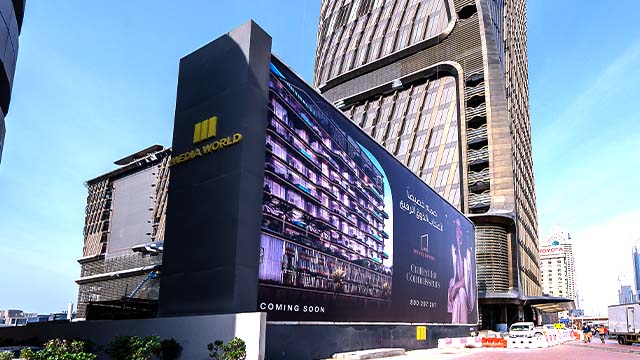
To know if a DOOH ad is working, brands track how people interact with it. This is called measuring consumer interaction.
Using tools like cameras, sensors, and mobile data, advertisers can see how many people looked at an ad, how long they watched it, or if they walked into a nearby store after seeing it.
Some screens even allow touch or phone scanning for more detailed data. These insights help brands improve their ads and make smarter choices.
Measuring interaction is important because it shows which ads work best and helps businesses get better results from their marketing.
Read also: Advertising Rules and Regulations in Dubai, UAE for OOH Advertising
Consumer behavior in DOOH refers to how people respond to digital ads in public spaces. It includes noticing, reacting, and acting on ads based on factors like visuals, timing, and relevance. Understanding these behaviors helps brands create effective, engaging content tailored to real-time environments and specific audience segments.
DOOH influences purchases by delivering targeted, timely, and visually appealing messages when consumers are already out shopping or commuting. Dynamic content and contextual relevance, like promoting a sale nearby, can drive impulse decisions, increase brand awareness, and push consumers closer to the point of purchase.
Location is key because it determines audience type, mindset, and intent. Placing DOOH ads in relevant spots, like malls, transit hubs, or business districts, allows brands to reach the right people at the right moment, enhancing engagement, memorability, and chances of influencing real-time actions or purchases.
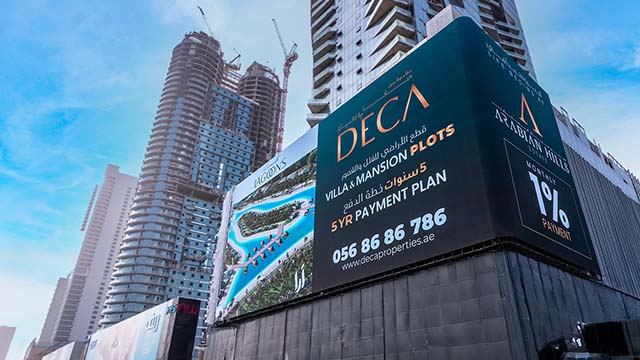
High-impact visuals, short messaging, motion graphics, and relevance to the environment make DOOH ads stand out. Interactive elements or real-time updates, such as weather-based offers or live countdowns can grab attention quickly, especially in high-traffic areas where consumers only glance for a few seconds.
Brands use tools like mobile location data, QR code scans, social media activity, and footfall tracking to measure response. These insights help assess how many people saw the ad, engaged with it, visited stores, or took digital actions giving a full picture of campaign effectiveness.
Time of day and surroundings impact how people perceive and react to DOOH ads. Morning commuters might need fast, clear messages; evening shoppers might engage more with promotions. Weather, events, and ambient conditions also shape mood, influencing how open consumers are to the messaging.
Technology enables real-time data tracking, audience analytics, and behavioral insights. AI and sensors can analyze demographics, dwell time, and movement patterns. These insights help advertisers tailor content, choose better placements, and optimize campaigns based on what resonates most with specific audiences in specific contexts.
Yes, DOOH ads are very effective in busy places like Dubai, where foot and vehicle traffic is high. Eye-catching digital screens in malls, airports, and roads reach diverse audiences daily. The city's modern infrastructure and tech-savvy population make DOOH an impactful tool for brand visibility and engagement.
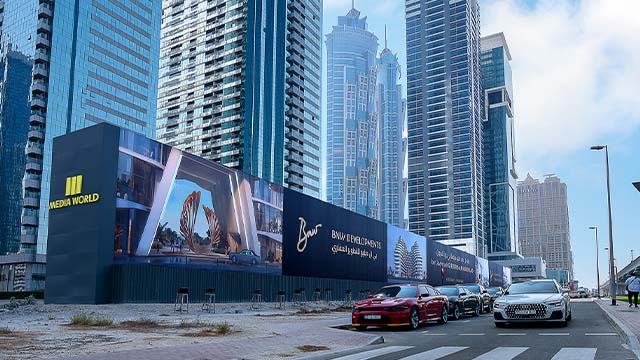
The future lies in dynamic, data-driven experiences that adapt to audience behavior in real time. As technology evolves, brands will connect more meaningfully with consumers through personalized, engaging ads.
To stay ahead in this fast-changing landscape, partner with experts who understand the power of DOOH.
Contact Media World today to launch campaigns that truly resonate with your audience and drive real results.